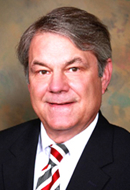© 2012 The Texas Lawbook.
By Janet Elliott
Staff Writer for The Texas Lawbook
AUSTIN – Texas would be the first state to mandate strict discovery limits and abbreviated trials for smaller ticket disputes under proposed rules written by the Texas Supreme Court in response to legislation.
Lawyers have until Feb. 1 to provide comments to the justices about the rules, which would apply to disputes involving $100,000 or less. The new procedures are due to go into effect next March.
In taking the bold step to make the expedited rules mandatory, rather than voluntary, the court said that “small measures” cannot achieve the Texas Legislature’s directive to support “prompt, efficient and cost-effective resolution of civil actions.”
“These rules are a significant effort to improve the efficiency of the Texas court system while protecting the rights of litigants,” the justices said in comments to the rule.
But lawyers who represent both plaintiffs and defendants are critical of the one-size-fits-all cases approach. Litigators also are worried about language in the order that might allow the court to apply the rules to disputes involving more than $100,000.
“If the court is looking at raising the limit in a couple of years, then we really do have some concerns,” said David Chamberlain, an Austin lawyer who advised the high court on the rules.

The court on Nov. 13 issued rules to implement House Bill 274, the so-called “loser pays” legislation passed in 2011. There is no controversy about the dismissal rule, which makes little change from current procedures.
The focus has been on the law’s directive to the Supreme Court to write rules for expedited procedures. The bill did not specify whether the rules should be compulsory or merely available for litigants to use.
The court would give each side up to six hours to conduct discovery. Trials would occur within 90 days after discovery is complete. At trial, each side would be limited to five hours to select a jury and present their case.
Lawyers expect the rules to be used in cases involving intersection collisions, slips and falls and business collections.
Chamberlain was a member of a task force appointed by the court to study the rules. The panel and the court’s rules advisory committee each split on the question of whether the rules should be voluntary or mandatory.
“Both sides [of the Bar] remain unconvinced that a cookie cutter approach is the best way to go,” said Chamberlain, whose firm Chamberlain McHaney often represents defendants. “The parties and the trial judge are the ones in the best position to make that decision.”
He said voluntary procedures could be stronger – limiting appeals and smaller juries – without violating litigants’ constitutional rights. Lawyers pushing for mandatory rules said that is the only way to achieve the law’s stated goals of “prompt, efficient and cost-effective resolution of civil actions.”
Alan Waldrop, a former court of appeals justice who served on the task force, said he doesn’t know of any other state that has mandated such rules. He is pleased that the court agreed to such a bold “experiment.”
“What I would hope is that these rules will make litigation involving amounts below $100,000 cheaper and quicker,” said Waldrop, a partner in the Austin office of Locke Lord.
Waldrop, who helped the business group Texans for Lawsuit Reform pass the law, said the rules may actually lead to an increase in lawsuits filed because businesses now have a mechanism to efficiently resolve smaller cases. Now, an individual or business may decide against going to court to collect small amounts of money because it would cost more in legal fees and expenses than the case is worth.
California, North Carolina and Colorado are making good progress with voluntary expedited rules, according to Chamberlain.
He disputes the notion that lawyers are making smaller disputes too expensive by deliberately running up discovery costs. “That’s just a false, negative, cynical assumption to think that ….judges and lawyers are not trying to be efficient,” Chamberlain said.
An unexpected section of the rules has lawyers scratching their heads to determine what it means. The court wants a person filing a lawsuit to state how much monetary relief is being sought. The categories include $100,000 or less; $100,000 to $500,000; $500,000 to $1 million; or over $1 million.
Litigants who fail to make this designation cannot conduct discovery, the court said.
Statues of limitations mean that lawsuits often are filed before a lawyer knows what a case is worth, Chamberlain said. For example, an injured person may need surgery after failing to recover with physical therapy.
Waldrop said it will take a few years for lawyers to get comfortable with the rules.
“My hope for businesses in Texas is that they will be able to have a mechanism for resolving these things that they can afford,” he said.
© 2012 The Texas Lawbook. Content of The Texas Lawbook is controlled and protected by specific licensing agreements with our subscribers and under federal copyright laws. Any distribution of this content without the consent of The Texas Lawbook is prohibited.
